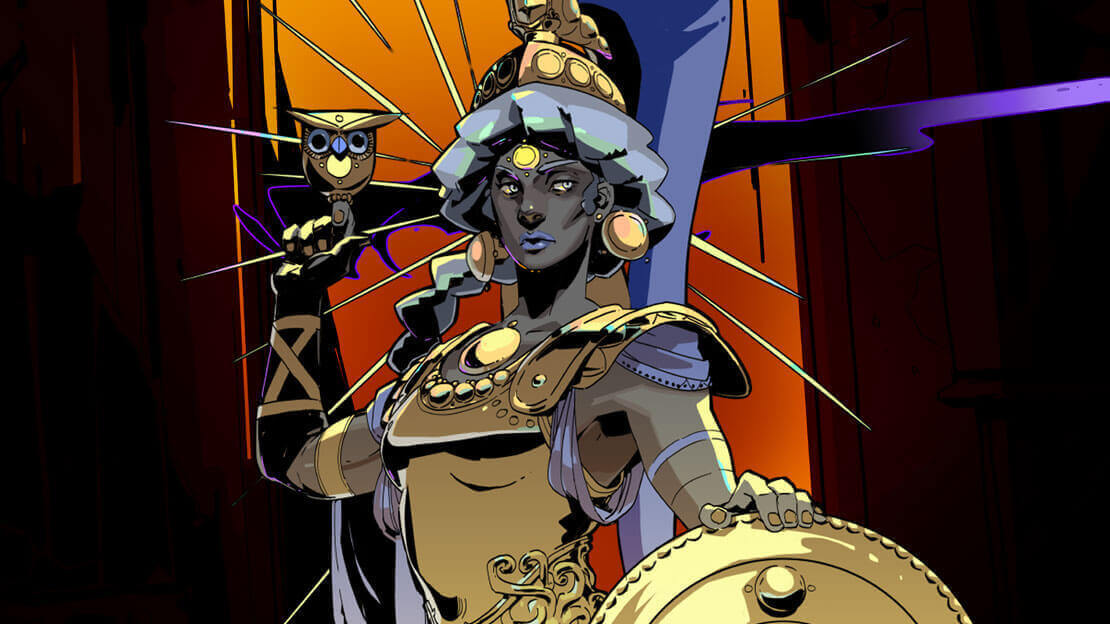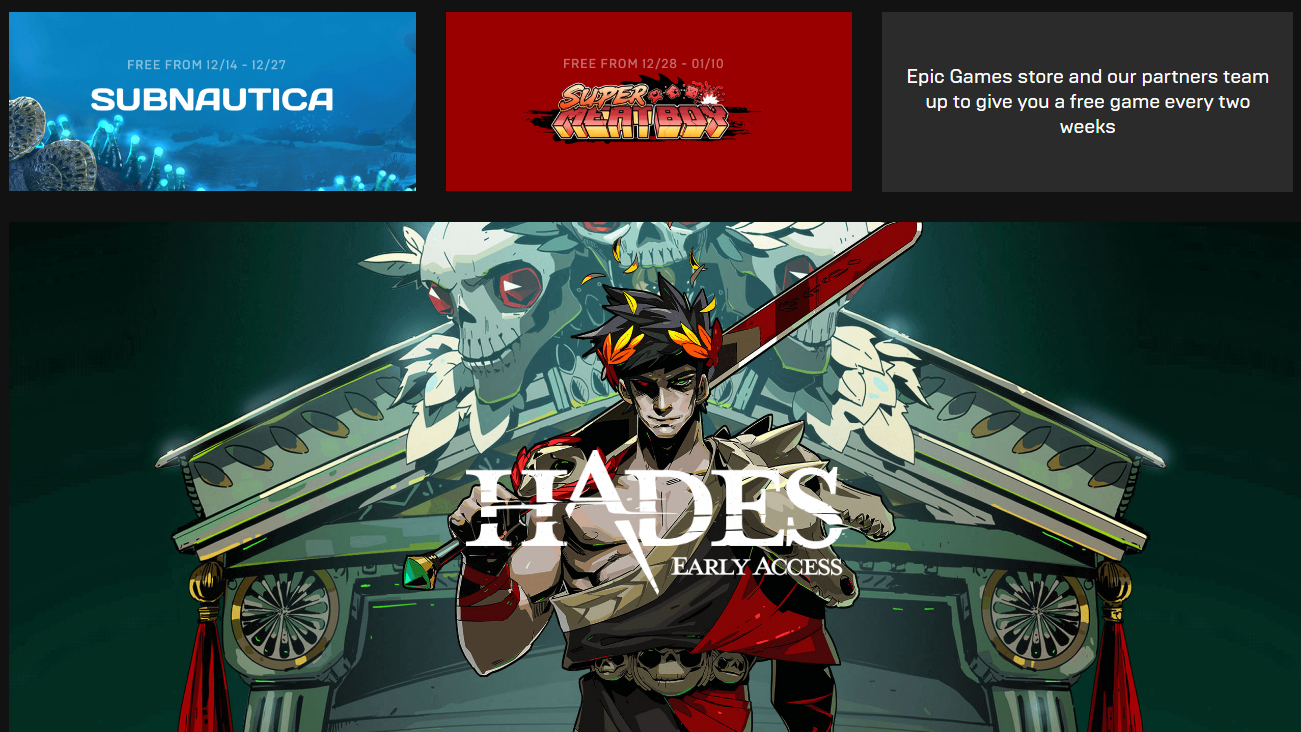Epic Store exclusives are worth the pressure they put on Steam
If Epic's store isn't an actual threat to Steam, it has no chance of pressuring Steam into cutting indies a better deal.

Days after announcing its new store, Epic took a direct swing at Valve by luring high-profile independent games such as Satisfactory, Hades, and Super Meat Boy Forever away from Steam. For many, this is an annoyance, but it's an annoyance that could make PC gaming better in the long run—at least, if Epic succeeds at making a decent store.
Individual indie devs have no bargaining power with Steam. They know that Steam offers the largest base of potential customers, along with features that ease multiplayer logistics, mod distribution, and promotion. More games are releasing on Steam than ever before, and so Valve's challenge for the past few years has been categorizing indies and surfacing them to people who might want to buy them.
The only developers that have been able to put real pressure on Steam are the largest of them, and they did so by building their own platforms. In 2018, Steam lost Call of Duty and Bethesda opted to launch Fallout 76 on its own platform. Will the next Elder Scrolls release on Steam? Probably not. EA has been gone for a while. Losing Ubisoft, Square Enix, 2K, or CD Projekt, which owns GOG but still releases on Steam, is probably a scary proposition: some of the best-selling Steam games of 2018 were Grand Theft Auto 5, Rainbow Six Siege, Far Cry 5, Civilization 6, Assassin's Creed Origins, and The Witcher 3. These games bring in revenue for years and years. One GTA feeds a city.
Small, independent, and niche developers often make our favorite games. They deserve a better deal, and we ought to support them getting it.
Smaller studios typically don't have the resources to walk away from Steam, so short of every small studio somehow banding together, they were never going to get Valve to reconsider their deal. But with Epic potentially posing a real threat—an option for indies instead of a Steam release, rather than in conjunction with one—Valve may finally have to.
Epic is taking 12 percent of the revenue for all games on the Epic Store, and waiving Unreal Engine royalties, whereas Steam still takes 30 percent of on-Steam sales up to $10 million, a target most indies will never exceed. It's about time someone besides itch.io challenged Valve's rate. That's especially true in a year when so many studios closed or laid off employees. Small, independent, and niche developers often make our favorite games. They deserve a better deal, and we ought to support them getting it.
That's only going to happen if Epic has something that Steam doesn't, and 'better features' (which it definitely doesn't have) was never going to cut it. Fortnite was the catalyst for this, a Trojan llama full of millions of new PC gamers who are now being introduced to Subnautica, but even that isn't enough. If Epic doesn't take potential revenue away from Steam, it isn't a real threat.

I'm not one to think that competition is good in and of itself, though. There could be bad outcomes to Epic's venture: here's yet another store to trust with our personal information, another store that can screw up in innumerable ways, or that could end up exerting too much pressure on GOG and itch.io as a side effect of taking on Steam. This is a Goliath vs Goliath situation, not a feel-good story about an underdog.
The biggest gaming news, reviews and hardware deals
Keep up to date with the most important stories and the best deals, as picked by the PC Gamer team.
Epic's store currently lacks basic features such as cloud saves, and it's important to note that Steam allows developers to generate keys and sell them off Steam, something Vertigo Gaming owner David Galindo calls out in his criticism of the Epic Store. That's Valve's way of getting new users onto its client, but it also means that the 30 percent cut can be bypassed to a degree. Additionally, the Epic Store isn't brimming with up-and-comers. It currently only houses well-known indies, so it's way too soon to call it a boon for independent developers in general.
This is a Goliath vs Goliath situation, not a feel-good story about an underdog.
Right now, though, the only way to release an 'exclusive' on PC is not to release it on Steam, because we just assume that everything'll be on Steam. That's how entrenched it is, and even GOG owner CD Projekt didn't find the success it wanted releasing Thronebreaker as a GOG exclusive. Epic has to show that Steam isn't the beginning and end of PC gaming. It needs a ton of users and it needs case studies: new examples of games that weren't made by EA or Activision succeeding outside of Steam.
That's what these exclusives are for, and without them, I don't think the Epic Store could ever come close to pressuring Valve into reconsidering its deal with indies (even if it doesn't go all the way down to 12 percent, given that it allows off-Steam key sales). It still may not, but to me, the chance is worth the inconvenience of having to open a different program to run Super Meat Boy Forever.
From here on, Epic needs to make its store much, much better, as well as more accessible to the niche developers who will benefit most from earning greater revenue from a smaller number of sales. (Epic said it will "open up more broadly" following the curated launch.) If it follows through, the Epic Store could be genuinely good for us and for PC gaming, and not just another thing we have to install to get the games we want.

Tyler grew up in Silicon Valley during the '80s and '90s, playing games like Zork and Arkanoid on early PCs. He was later captivated by Myst, SimCity, Civilization, Command & Conquer, all the shooters they call "boomer shooters" now, and PS1 classic Bushido Blade (that's right: he had Bleem!). Tyler joined PC Gamer in 2011, and today he's focused on the site's news coverage. His hobbies include amateur boxing and adding to his 1,200-plus hours in Rocket League.

